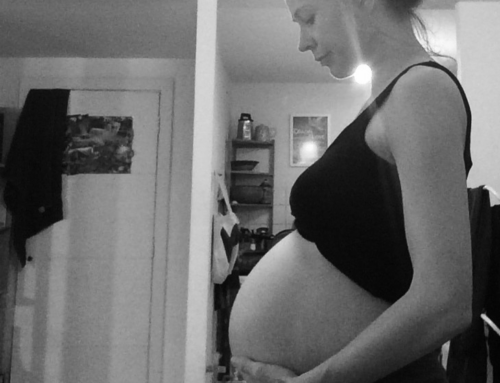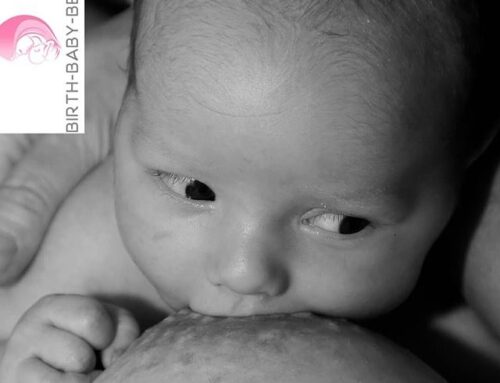
Mothering the Mother in the First 40 Days
What are the first 40 days all about?
The first 40 days after giving birth is a sacred time of rest and recovery in a new mothers’ life. This time is also known as the ‘fourth trimester’ as the mother and her newborn are still as one. They are connected to each other just like in pregnancy. A newborn doesn’t know she is out of the womb for the first six weeks after birth, so everything that happens to the mother during those first six weeks also happens to the newborn. During this time a mother feels physically and emotionally fragile as she and her body adjust to the changes that have happened. It is vitally important that a mother gets proper care and support during this time, that she feels safe, nourished, cared for and loved. If she is feeling this way her baby will automatically feel the same.
Many cultures still practice a seclusion or confinement time during the first 40 days as this is a precious window of time for both the mother and her newborn. They can bond deeply with each other and the baby, who is sensitive to her new world, can enjoy a gentle welcome into the world while the mother enjoys complete rest and recuperation. When women are given the opportunity to rest and understand what is normal in their physical and emotional recovery they are much more likely to feel restored. If not, the state of depletion which all women are in after birth can continue into later life. It is said that how a woman is cared for in the first 40 days has an impact on her health for the next 40 years.
How can I recover quickly after birth?
The culture of upholding the 5 universal postpartum needs, which are an extended rest period, nourishing food, loving touch, presence of wise women and contact with nature, underpins how well women recover after birth. The extended rest period may seem restrictive and counterintuitive in our culture of bouncing back and getting back to normal life quickly. Women may not feel they have the support to allow this or may feel that 40 days is too long and want to get back out into the world sooner. When we are supporting a mother who is having trouble slowing down and allowing herself to receive the rest and nourishment she needs to truly thrive after the birth of her baby, we like to help her to understand the benefits of this rest period for her and her newborn. It really helps her slow down and give herself the self-care she needs.
Rest is not easy to come by with a newborn, who will want to be fed every 2 hours throughout the day and night. A mother needs practical support from women in her support network or a postnatal doula to allow her to rest, which includes help with household tasks such as laundry, cleaning, cooking nourishing food, as well as help with caring for her newborn. This support will help her to feel safe and loved and can remove the stress she may be feeling of trying to get things done that she simply does not have time to do. Ideally all a mother should be doing is caring for herself and her baby, someone else should be taking care of everything else.
How will I feel emotionally after birth?
Giving birth is an amazing achievement for all women. What is often overlooked is the emotional rollercoaster that comes afterwards. There is a huge change in women after they have given birth and they need time, care and understanding as they move from woman to mother. Or indeed from mother of one to mother of two or more. Every woman will be experiencing a range of emotions, including joy, happiness, exhaustion, and even sadness, disappointment or anxiety. It is important for her to have a supportive network of friends and family who can listen to her feelings and offer comfort and understanding. She needs to be able to fully and honestly express how she is feeling, which is when having a postnatal doula can be of huge support. Doulas allow women the space to express her feelings, validate her emotions and process all that is going on, without judgement and without trying to fix them or minimize them.

Breastfeeding your Baby.
Breastfeeding, although the most natural and nourishing way to feed a baby, doesn’t always happen easily. A mother needs lots of support in the first 40 days to establish breastfeeding. The act of giving birth can leave women physically uncomfortable and emotionally vulnerable. Feeling vulnerable can lead to feelings of doubt in her ability to sustain her new baby. Perhaps the birth took some unexpected turns and the feeling of our bodies letting us down can carry through into early parenting. The way a mother feels physically and emotionally can have an impact on how she responds to her baby’s needs. When she has someone to mind and nurture her, as she nurtures her baby, this will allow her to fully focus on her baby.
Having a wise woman to talk through normal issues such as sore nipples and engorged breasts is vital, as well as having practical support in finding comfortable positions and knowledge on normal newborn feeding. It is important to remember that every mother and baby is different, and what works for one may not work for another. It is important to be flexible and open to trying different approaches.
Studies have shown that being well supported in the early days of breastfeeding, makes the journey more successful. Reaching out for guidance from a midwife, public health nurse, postnatal doula, a volunteer breastfeeding counsellor (Cuidiu or La Leche League), or IBCLC can put you on the right track. Many concerns can be overcome with patience and perseverance, and having someone in your corner supporting you as you feed your baby can make all the difference to your confidence in your body’s ability.
What should I eat during my first 40 days?
After giving birth new mothers are vulnerable to cold so therefore need foods that are both warming in temperature, and which also have an internal warming effect from the spices used. Her digestive system will also be sluggish so it’s important that she eats foods that are easily digestible. Traditional foods that are given to women around the world are generally anti-inflammatory and nutrient dense which help to restore the mothers depleted state. Eating healthily is vital for women to heal well and to enrich their breastmilk.Ideally women should not be eating cold foods like salads and smoothies, which although healthy and nutritious, will contract blood vessels making it harder for the body to digest nutrients. We love to prepare soups, stews, curries and loaded porridge for the women we support. Everything is served in a bowl so very easy to eat in bed.

What practices can be done in the first 40 days?
Women’s bodies go through huge changes after birth – hormones are fluctuating, blood and fluid volumes are returning to normal, and organs that have been displaced in pregnancy are returning to their pre-pregnancy positions. To help with all these changes there are practices such as massage and body wrapping to pamper the new mother. Daily massage for both the mother and her baby help to regulate and balance their systems.
Postnatal doulas or other support people can nurture the new mother in these ways while also preparing nourishing food and supporting her in getting quality rest. In our practice we also support women with our own blend of postnatal herbs, either to be drunk as a tea allowing women to feel more grounded and connected with themselves or used as a healing bath to aid physical recovery.
Written by Ceara McManus and Eleanor Farrell
Postpartum Doulas.
Owner of Doula to You.

Email Newsletter
Subscribe to our monthly email newsletter to stay up to date with the latest news, articles and stories:
Error: Contact form not found.





